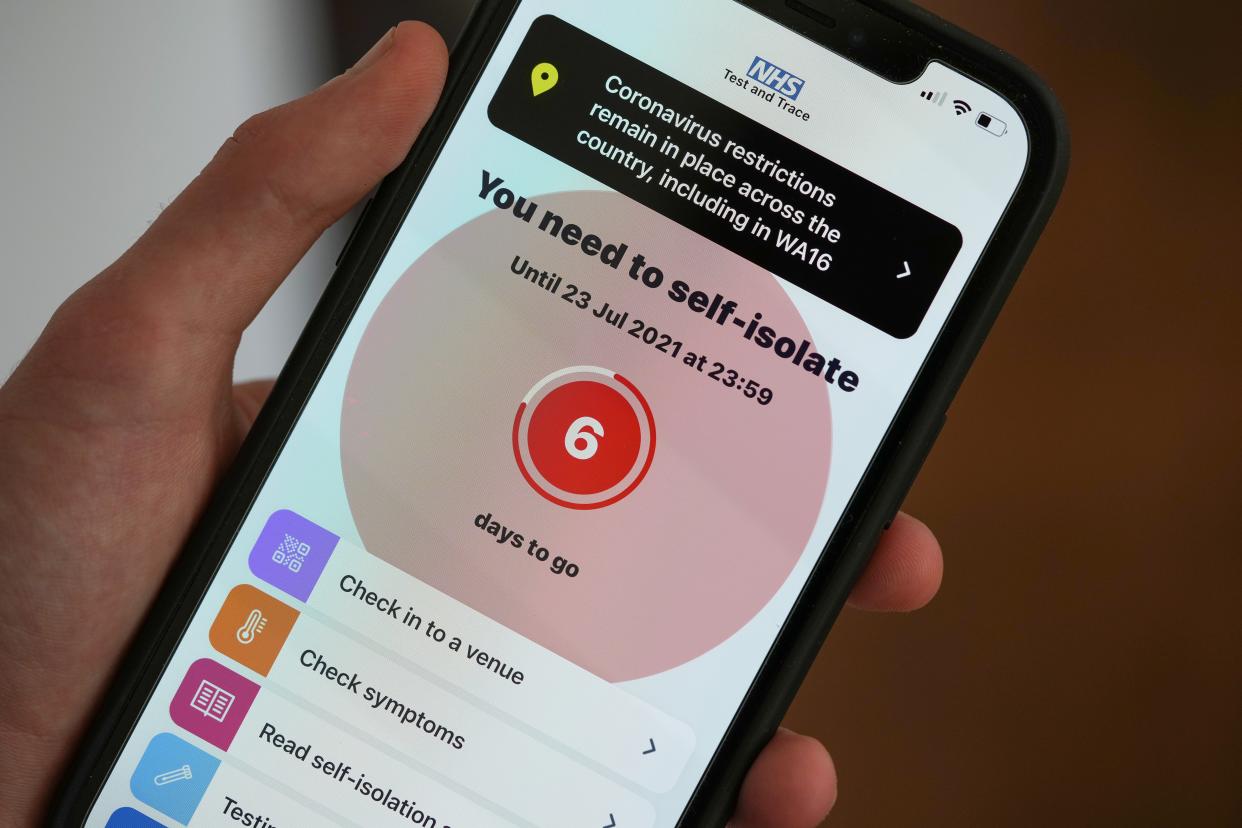Numbers being ‘pinged’ to self-isolate by NHS Covid app drop 43 per cent in a week

The number of people being “pinged” and told to self-isolate by the NHSCovid app has dropped dramatically in the space of a week.
In total, 395,971 alerts were sent in the week to 28 July. These notifications told people in England and Wales they should self-isolate as they had been in close contact with a person who had tested positive for Covid-19.
The figures are 43 per cent lower than the number recorded for the previous week, when 690,129 alerts were sent on the app, government figures revealed.
Experts have suggested the rapid drop in the number of alerts being sent could be due to a fall in virus cases, but may also be due to people no longer using the app.
There has been a big decrease in the number of check-ins to venues via the app. In the week to 28 July, there were 2.4 million check-ins in England and Wales – down 65 per cent on the previous week.
It was announced on Monday that the app would be updated in the wake of the “pingdemic”, so fewer contacts will be asked to isolate.
Sajid Javid, the health secretary, explained that the “logic” behind the app was being altered. However, the sensitivity and risk threshold will stay the same.
The app will only go back two days, rather than five days prior to a positive test when sending notifications.
Paul Hunter, a professor at the University of East Anglia, said: “The primary reason for the fall in pings is the big drop in cases.
“There may have been some additional impact of people disabling that aspect of the app but the main reason is the drop in cases.”
Scientific adviser to the Test and Trace programme, Professor Christophe Fraser, said: “The number of pings is determined by the number of cases, the number of users, and the number of risky contacts made by users.
“The reason the number of pings has gone down is the number of cases has gone down.
“One question under investigation is to what extent the ‘pingdemic’ contributed to the decline in cases.”
Dr Philip Scott, chair of the health and care executive at BCS, The Chartered Institute for IT, said that the app had resulted in “so many pointless alerts”.
He said: “People are either uninstalling it or just not running it, according to the data that shows venue check-in plummeting.
“Overall the app has served a purpose, but there is a need to challenge why its policy basis, of legal enforceability, was different to Test and Trace and why the alerting algorithm was not the same.
“This is one example that shows why better professional IT standards should be more closely followed when it comes to apps, and algorithms that affect our daily lives.”
According to the Test and Trace system, a contact is someone who has been close to a person who has tested positive any time from two days before symptoms started, or two days prior to when a positive test was taken.
In England, there is a legal requirement for people to self-isolate if they test positive or are contacted by NHS Test and Trace. However, this does not apply to notifications sent via the app.

 Yahoo News
Yahoo News 
